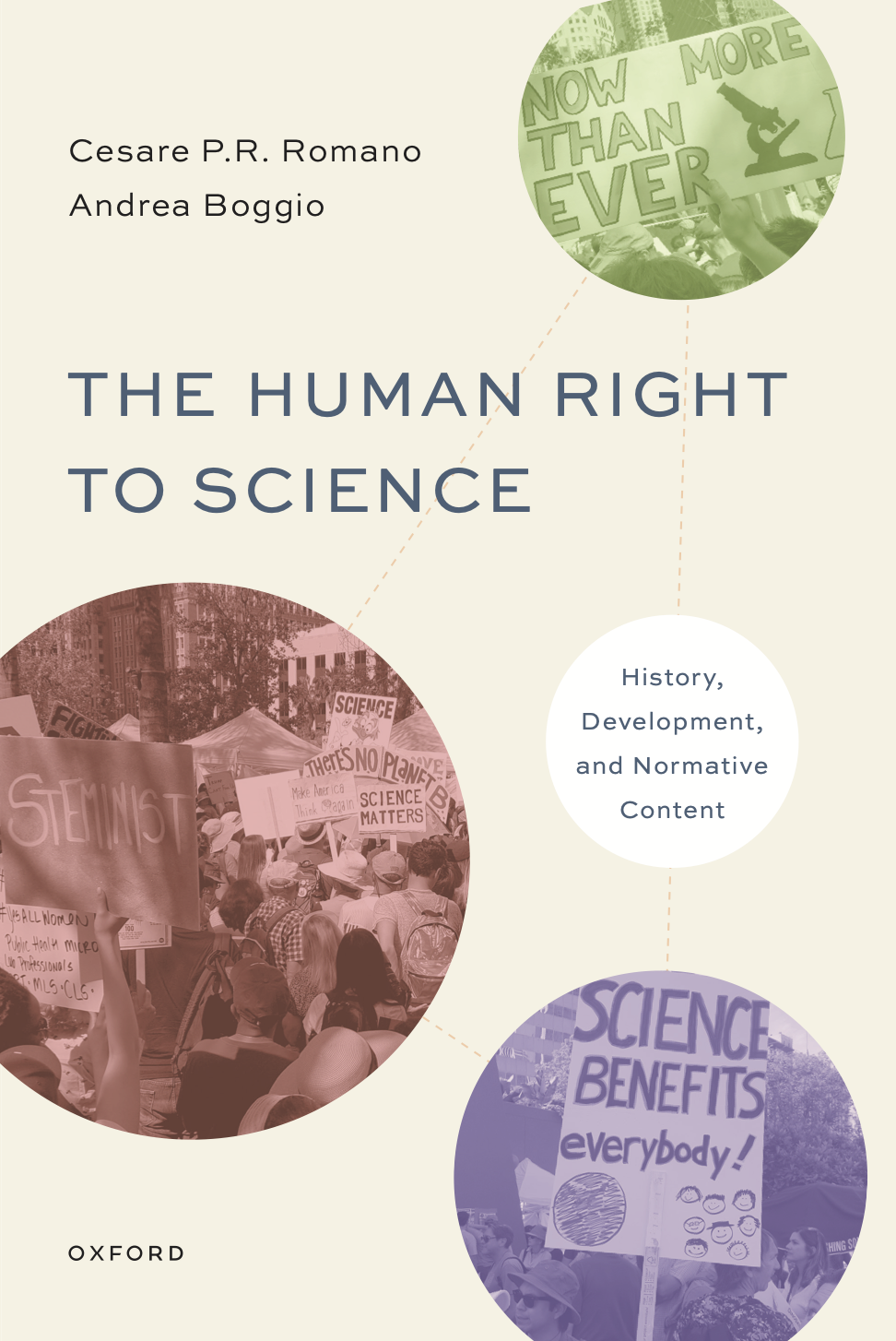
The right to science has long confounded international legal scholars and practitioners. While it is key to properly framing the relationship between science, technology, and society, the right to science continues to be poorly understood and very rarely invoked by those who could benefit from it.
The Human Right to Science: History, Development, and Normative Content offers a thorough and systematic analysis of this pivotal human right. After discussing the aims, methodology, and key definitions, the book examines the historical origins of the right to science. It then turns to mapping the development of the right within the United Nations system and its spread to regional regimes. Finally, the book breaks down the normative content of the right to science into twenty-two distinct rights, grouped in four clusters: the right to scientific progress, to responsible scientific progress, to participate in scientific progress, and to benefit from scientific progress.
The 900-page book is the first comprehensive exploration of the human right to science, from its ideation to its current interpretation and future trends. The book uncovers previously unarticulated entitlements and obligations, offering new insights on human rights interconnections.
This week, Science for Democracy will be at the Geneva Science and Diplomacy Anticipator (GESDA) in Switzerland, launching the new book by Cesare Romano, Secretary General, and Andrea Boggio of SfD.
The book can be purchased directly from Oxford University Press, using the discount code “ALAUTHC4”.



